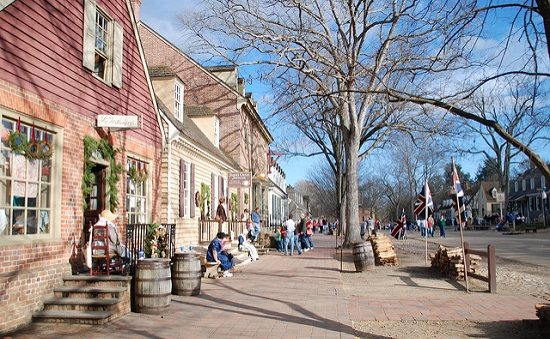
July 3rd, 2017; Williamsburg Yorktown Daily
Last week, the Colonial Williamsburg Foundation announced a major restructuring of the historic site’s managing foundation, a move that includes layoffs and new oversight for its for-profit entities. According to the Williamsburg Yorktown Daily’s latest reporting, a day later, foundation president Mitchell B. Reiss officially asked for a three-year period of tax relief from the City of Williamsburg, James City County, and York County. Williamsburg Councilman Benming Zhang told the Williamsburg Yorktown Daily that the Foundation’s request was “unprecedented.”
In his letter to Williamsburg’s mayor, Paul T. Freiling, Reiss makes the argument that Colonial Williamsburg is an “economic driver for the greater Williamsburg region.” Referring to Williamsburg’s recent restructuring, Reiss adds, “Success on our path to sustainability will not only enable the Foundation to thrive, but it will result in real benefits to the City of Williamsburg, James City County and York County as well.” Reiss asserts that in 2016, Colonial Williamsburg accounted for “more than half a billion dollars in economic output and supported approximately 8,500 jobs across the Commonwealth.” Adding further specificity to this claim, Reiss notes, “Nearly four hundred million dollars of that economic output and nearly 7,400 of those supported jobs were within the City of Williamsburg, James City County and York County.”
For Fiscal Year 2017, Colonial Williamsburg estimates that its tax bill to the City of Williamsburg will exceed $2.1 million, representing real estate tax, property tax, and other service and license fees. That $2.1 million is 3.5 percent of the city’s FY 2018 Budget. The foundation also estimates real estate tax bills of $114,218 to York County and $75,235 to James County.
Reiss’ request for a three-year hold on taxes to all three regions also includes a request for a hold on the City of Williamsburg’s proposed new admission tax of seven percent, which would raise ticket prices. According to the Williamsburg Yorktown Daily, in debates on this proposed tax last month, the City of Williamsburg claimed that this additional revenue would go toward a “tourism development fund” to support the region’s reputation as a tourist destination. Attempting to counter that claim, Reiss argued that the tax would have “devastating” effects on the foundation which was already struggling.
The City of Williamsburg’s FY 2018 Budget is final, so waiving Colonial Williamsburg’s taxes would necessitate replacing that lost revenue. Council member Doug Pons told the Williamsburg Yorktown Daily that the Council would likely need to raise property taxes by 20 percent in order “to be fiscally responsible to our residents.”
Sign up for our free newsletters
Subscribe to NPQ's newsletters to have our top stories delivered directly to your inbox.
By signing up, you agree to our privacy policy and terms of use, and to receive messages from NPQ and our partners.
The debate over if and how nonprofits should be taxed by their local regions has become heightened since the 2008 recession, which depleted the tax base of many regions throughout the country.
A 2013 Washington Post story cites David L. Thompson, vice president of public policy at the National Council of Nonprofits, who explained that “Virginia has a law, unique in the country, that gives local governments the authority to grant or deny property-tax exemptions to some types of nonprofits.” As additional context on the issue, the story also cites Terry Rephann, a regional economist with the University of Virginia’s Weldon Cooper Center for Public Service, who explained that decisions on tax exemptions are often “controversial;” some people believe nonprofits provide unmatched services, and others believe nonprofits are too similar to for-profit entities. After experimenting somewhat unsuccessfully with a for-profit side, hopefully Colonial Williamsburg will still be able to rebound as a sustainable entity by the close of 2018 as outlined in its restructuring plan.—Anne Eigeman













